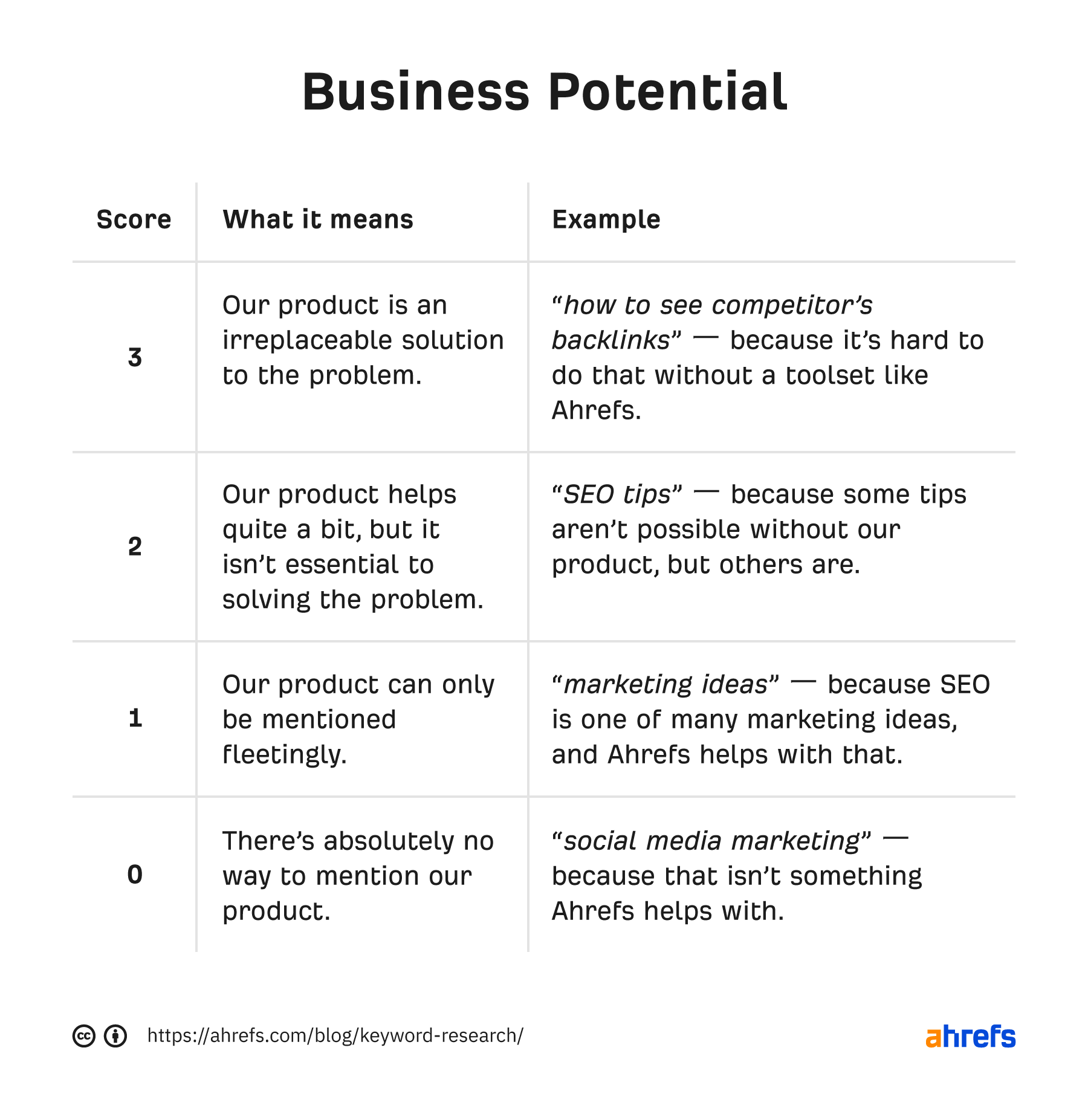Prioritizing your list of keywords and deciding where you should invest your efforts first is probably the least straightforward and extremely “individual” part of the keyword research process.
There are just too many things to consider:
- What is the estimated traffic potential of this keyword?
- What’s the ranking difficulty? Who are you competing against?
- What will it take to create a perfect page? Or maybe you already have one, and it needs to be improved?
- What’s the business value of this keyword? What would you get from ranking for it?
That last point is a particularly important one. While search volume, traffic potential, ranking difficulty, and search intent are all important considerations, you also need to factor in what ranking for this keyword will be worth to your business.
How to gauge the “business potential” of a keyword
Many marketers judge the value of a keyword by mapping it to the so-called buyer’s journey, i.e., a process people go through before making a purchase. Conventional wisdom says the earlier people are in their journey, the less likely they are to buy.
Here’s one popular buyer’s journey framework:
- Top of the Funnel (TOFU) – People are looking for general information about the subject.
- Middle of the Funnel (MOFU) – People are researching available solutions to their problem.
- Bottom of the Funnel (BOFU) – People are looking to make a purchase of a specific product or service.
TOFU keywords tend to have high search volumes but low conversion rates (i.e., “keyword research,” which has 5,700 monthly searches). While BOFU keywords are extremely lucrative but their search volumes are much lower (i.e., “best keyword research tool,” which has 800 monthly searches).
At Ahrefs, we think that this kind of framework is rather limiting and perhaps even misleading.
Here are three reasons why:
First, the fact that someone is looking for a TOFU term like “keyword research” doesn’t mean that you can’t promote your product to them. (Which is exactly what I did in this very article with all the mentions of our Keywords Explorer.)
Second, it’s quite challenging to assign each keyword a definitive TOFU, MOFU, or BOFU label because things aren’t always that clear-cut. For example, “best keyword research tool” could be a MOFU or BOFU keyword for us. It depends on how you look at it.
Third, some marketers broaden their definition of TOFU to such a degree that they end up covering completely unrelated topics. For example, the folks at HubSpot have written articles targeting the following keywords: “famous quotes,” “ice breaker games” and, most hilarious of all, “shrug emoji.”
Here at Ahrefs, we’ve developed our own way of determining the business value of a keyword.
We call it “business potential,” and it’s a simple score from 0 to 3, which indicates how easy it will be to pitch our product while covering a given keyword.

To be completely honest with you, we do sometimes have internal debates within our team when we’re scoring our blog topics according to this scale. And yet we still prefer it to any of these conventional “buyer’s journey” frameworks.
Which keywords should you start working on first?
Unfortunately, there’s no straightforward answer to this question. As SEOs like to say, “It depends.”
- Are you working on a brand-new website or an established business?
- Are you the only marketer, or do you manage a large team?
- Are you responsible for the actual conversions or providing new leads to the sales team?
- How fast do you need to show results?
Keyword research is an act of balancing your unique circumstances with a set of metrics and concepts, which we’ve just covered: traffic potential, keyword difficulty, business potential, and search intent.
In some cases, your job will be to get as much traffic as possible as fast as possible, which comes down to finding the high-volume, low-difficulty keywords. Other times, you’ll need to focus on leads or conversions, in which case business potential will be the most important metric to focus on.
Keyword research is not the process of finding “easy to rank for” keywords. It’s the process of finding the keywords that make the most sense to your business.
You should also have short-, medium-, and long-term ranking goals. If you only focus on short-term goals, you’ll never rank for the most lucrative keywords. If you only focus on medium- and long-term goals, it’ll take years to get any traffic.
Leave a Reply